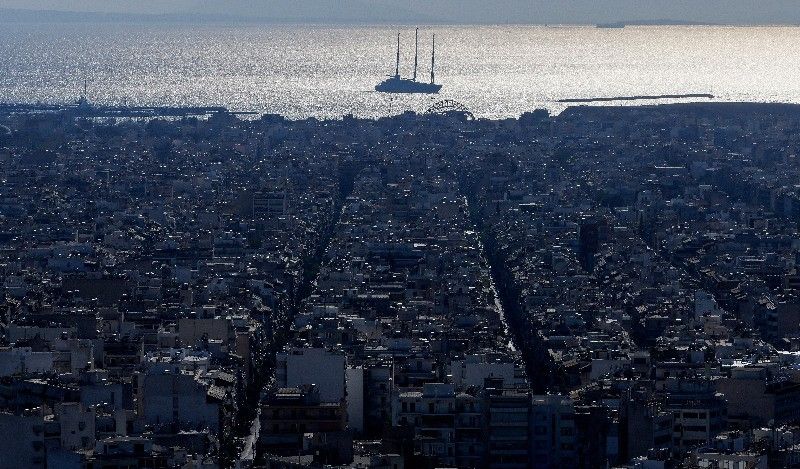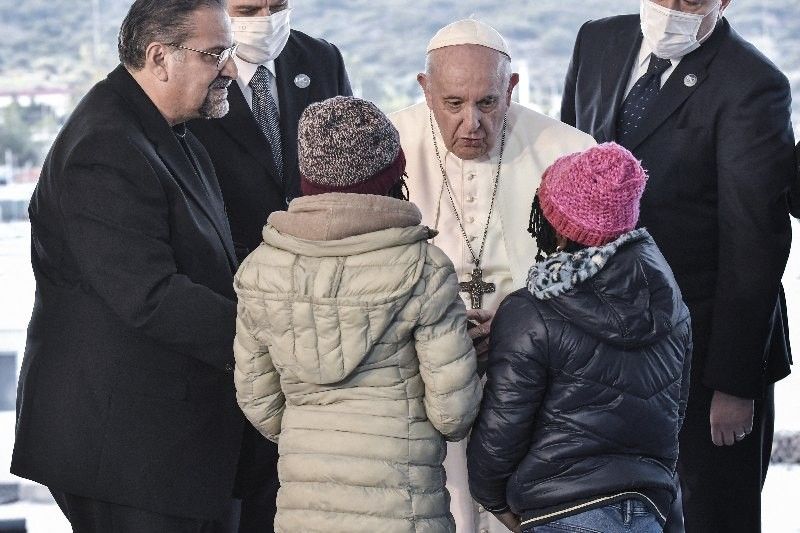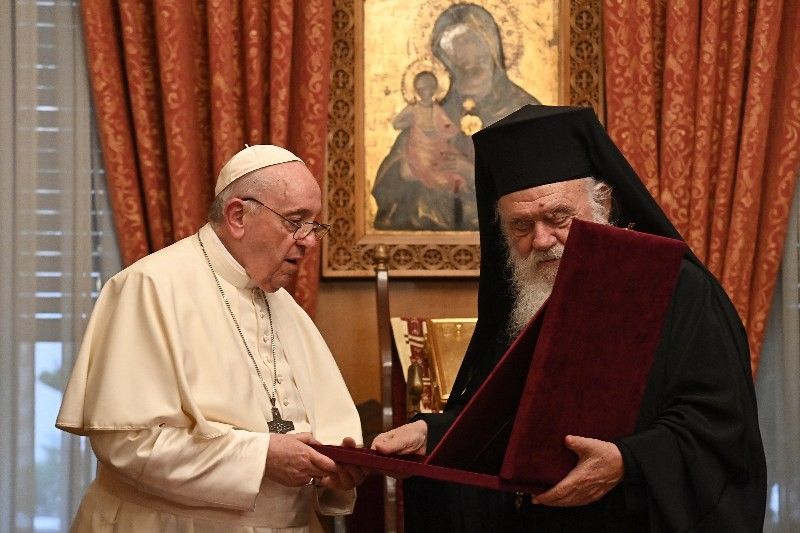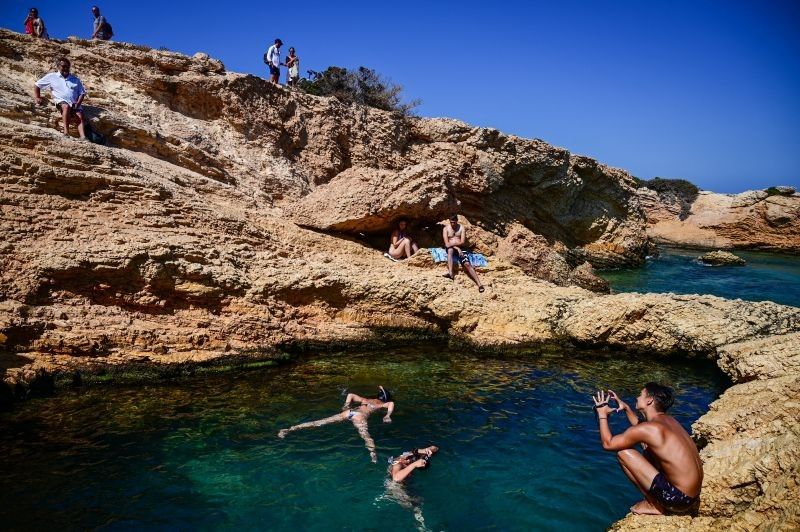Five things to know about Greece as pope visits

ATHENS, Greece — Pope Francis on Saturday began a two-day visit to Greece, a country that for centuries has bridged Europe and the Orient and has cultivated a strong Orthodox identity.
Since 2015, Greece's geographical position has placed it on the front line of the migration crisis, and a papal visit to a country that keeps its Byzantine tradition close at heart always carries special significance.

Here are five things to know about Greece:
1. Antiquity and Byzantium
A symbol of Greece, the Acropolis in Athens is the crowning achievement of a golden age of antiquity in the fifth century BCE that later inspired Rome and left its mark on global culture.
In Roman times, Greece holds a chapter in the annals of early Christianity with the passage of the Apostle Paul through Athens, Corinth and the north of the country.
Ancient Greek was an important language under the Roman empire, and medieval Greek became the official language of the Byzantine empire, whose legacy is a key part of modern Greek heritage.
Byzantium's coexistence with the papacy and the rising Latin states of the West was often fraught with tension as the eastern empire's power waned.
The Schism of 1054 and the sacking of Constantinople during the Fourth Crusade in 1204 created anti-papal feeling that endures today.
Pope John Paul II sought to break the ice in 2001, praying on a hill where Saint Paul preached to the Athenians almost 2,000 years ago, and asking Orthodox believers to forgive the errors of the Roman Catholic Church.
2. The modern Greek state
Greece this year celebrates the 200th anniversary of the start of the war of independence from Ottoman rule in 1821, a near-decade conflict that led to the creation of the modern Greek state after a late intervention by Britain, France and Russia.
Greece joined the European Economic Community, the precursor to the EU, in 1981.
3. Orthodox supremacy
Under the Greek constitution, the Orthodox faith is the dominant religion in Greece, representing 86 percent of the population.

An integral part of the Greek state, which has granted fiscal privileges and pays the salaries of its clergy, the Church of Greece plays an important role in the country's politics and has used its clout to limit the influence of other faiths.
Though its present head Archbishop Ieronymos is seen as a moderate, a number of hardline bishops are believed to be opposed to the pope's visit.
There are an estimated 60,000 Greek Catholics -- the legacy of Venetian and Frankish conquests -- and another 250,000 more recent arrivals from the Philippines, Poland and African states.
4. The financial crisis
Struck by a debt crisis in 2010, Greece lived under strict austerity for eight years, a turbulent period for the country's social and political life.
Unemployment hit 25 percent in 2012 and currently stands at 13 percent.
Propped up by billions of euros in international loans, Greece is making a slow recovery with the aid of its vibrant tourism industry, which has proved resilient despite the coronavirus pandemic.
5. Perilous Aegean crossings
In addition to being a magnet for tourists, Greece's Aegean islands near Turkey have been at the forefront of the migration crisis.

Hundreds of thousands of asylum seekers have risked their lives to cross the Aegean in fragile boats in search of a better future in Europe.
More than 1,700 people have drowned or are still missing since 2014 according to the International Organization for Migration, most of them during a mass exodus in 2015 sparked by the Syrian civil war.
Greece's conservative government, elected in 2019, has adopted tougher asylum and integration policies designed to discourage fresh migration, in line with a hardening stance elsewhere in Europe.
Greece has accused its historic rival Turkey of seeking to "instrumentalise" the hundreds of thousands of asylum seekers on its soil for political gain.
Athens has bolstered its maritime patrols and land border after an attempted incursion by migrants encouraged by Ankara last year.
Rights groups say Greek authorities routinely expel migrants back to Turkey in illegal pushbacks. The government has strongly denied any such practices.



















